Proper nutrition during pregnancy and while breastfeeding is important for mothers as well as crucial to their infants’ health. Women with poor nutrition together with their growing fetuses are at a greater risk of morbidity and death, from malnutrition. Malnutrition is a major concern for pregnant women or those who may become pregnant in developing countries of Africa. To meet their energy requirements and support the healthy growth of their unborn babies, healthy pregnant or breastfeeding women require between 300-500 extra calories per day.
Lack of adequate energy intake during pregnancy causes low infant birth weight which affects 20 million children living in underdeveloped countries, killing most of them in the first week of life. Those who survive beyond the first week can live with cognitive impairments, higher disease risk, and short stature, all of which are irreversible. Malnutrition also causes other fetal or infant health consequences such as brain damage and birth defects. Maternal malnutrition causes an increased risk of infection, weakness, and anemia in pregnant women. Monthly weight monitoring and simple health education for pregnancy are very effective for producing positive maternal and infant outcomes.
Use of Dietary Supplements While Pregnant or Breastfeeding
Nutrient needs are increased during growth periods such as pregnancy and breastfeeding. It is because of this reason that pregnant or breastfeeding mothers may be recommended dietary supplements during this important stage of the life cycle. Individual energy needs vary for each person, so they should be assessed before giving dietary supplementation. The World Health Organization recommends a daily intake of 60 milligrams of iron supplement per day for all pregnant women. Because pregnant adolescents are supporting both their own growth as well as the fetus’, they are required to consume extra protein of up to 101 grams at term or 1.5 grams per kilogram of pregnant body weight. During pregnancy or while breastfeeding, women should eat a variety of healthy foods and supplements.
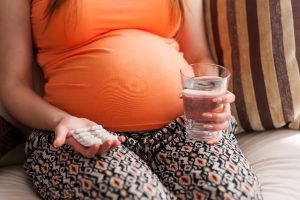
- They should consume three meals a day with two extra small meals or snacks for nutrition and energy for themselves and their growing babies.
- They should consume a minimum of 2 to 3 liters of liquids daily.
- They should take iron and folic acid tablets during pregnancy until 6–12 weeks after delivery to prevent anemia.
- They should use iodized salt to help the baby’s brain and body develop well.
- They should learn their HIV status, attend all the clinic appointments and take their medicines as advised by their health providers.
During nutrition education for pregnant and breastfeeding women, methods for obtaining key nutrients such as calcium, iron, folic acid, vitamin A, and protein should be emphasized. Below is a breakdown of proper nutrition for pregnant mothers during each trimester.
First Trimester
The World Health Organization (WHO) recommends a daily intake of an extra 90 calories and 1 gram of protein for pregnant women during the first trimester of pregnancy. Since some additional nutrient needs such as folic acid, iron, and vitamin A are difficult to get from food sources alone during pregnancy, pregnant women are recommended to take them as supplements or fortified foods throughout the entire pregnancy to decrease the risk of maternal and fetal complications that could eventually cause death.
Second Trimester
During the second trimester, an additional 10 grams of protein and 290 calories are required. The additional calories should be from nutrient-dense foods such as beans, fruits, vegetables, and grains, while extra protein should be from eggs, meat, beans, and seafood. Inadequate weight gain during the second trimester can cause low birth weight which may lead to the infant’s risk of death.
Third Trimester
During this stage, 31 grams of protein and 470 calories should be added to the daily diet. Processed foods with fats and added sugars should be reduced, while vegetables, fruits, foods rich in protein, and grains should be incorporated into the diet for extra calories and protein. According to the WHO, a 10 to 14 kilograms total gestational weight gain gives optimal infant birth weights.
Nutrients for Pregnant and Breastfeeding Women
Here is a breakdown of some of the essential nutrients for pregnant and breastfeeding women and their babies. They can be found in vegetables and fresh fruits, nuts, whole grains, beans, lean meats, and dairy products. A daily prenatal multivitamin with iron may also be recommended.
Calcium
Calcium helps in building strong bones and teeth and helps the circulatory, nervous, and muscular systems work properly. Pregnant and breastfeeding women should take 1,000 mg of calcium daily. Healthy sources of calcium include cereals, low-fat dairy products, kales, milk alternatives, and fortified orange juice.
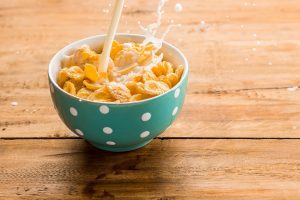
Carbohydrates
Eating carbohydrates give the body energy to support the baby’s growth and development, and breastfeeding after delivery. The best food sources of carbs include certain fruits, whole grains, and vegetables, which also provide fiber. Intake of refined carbs such as white rice, white flour, and added sugars should be limited.
Fiber
Fiber helps ease constipation which is a common thing during pregnancy. Some good sources of fiber include whole grains, legumes, fruits, and vegetables.
Folic acid
Folic acid is a nutrient that supports the development of a baby’s spinal cord and brain, and also makes white blood cells and red blood cells. A daily intake of at least 400 micrograms of folic acid before conception and during the first trimester reduces the risk of neural tube defects (incomplete brain and spinal cord development) in newborn babies. During the second and third trimesters, pregnant women should take 0.6 milligrams of folic acid while breastfeeding women require 0.5 milligrams. Fortified bread and cereals are good sources of folic acid. Folate, which is the natural form of folic acid, is found in lentils, green leafy vegetables, avocados, citrus fruits, and beans.
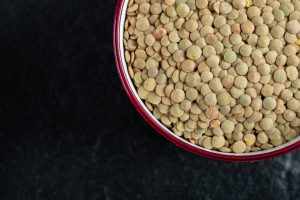
Healthy Fats
Since fat is an important component of a healthy diet, it is needed during pregnancy to support the baby’s growth and development. Healthy fats which are unsaturated and trans fats that are unhealthy and saturated should be limited. Healthy fats can be found in canola oil, olive oil, and other vegetable oils, avocados, nuts and seeds, and fatty fish such as salmon.
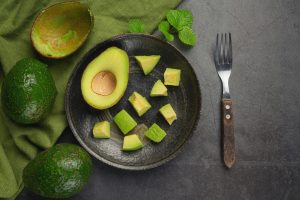
Iodine
Iodine helps the thyroid gland make hormones that support the growth and development of the brain. Lack of enough iodine during pregnancy can put the baby at risk for learning problems, thyroid problems, and developmental delays. Pregnant and breastfeeding women should use iodized salt during cooking and consume iodine-rich foods, like dairy products and seafood. They should also incorporate a daily intake of prenatal vitamins with 150 micrograms of iodide, which is a source of iodine that the body easily absorbs.

Iron
Eating an iron-rich diet and taking an iron supplement daily during pregnancy or while breastfeeding prevents iron-deficiency anemia. Women with insufficient iron may occasionally feel tired and have other problems. Lean meats, fish, poultry, fortified cereals, green leafy vegetables, and legumes are good dietary sources of iron.
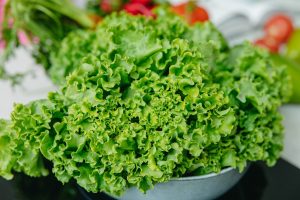
Protein
Protein supports the building of a baby’s muscles, other tissues, and bones, and helps in growth, especially during the second and third trimesters of pregnancy. Pregnant women generally require more protein but should keep away from protein supplements, like powders and shakes. They should use healthy sources of protein such as lean meat, fish, poultry, eggs, beans, tofu, and nuts and nut butter.

Vitamin A
Vitamin A helps in the development of a baby’s eyes, heart, and immune system. In developed countries, vitamin A deficiency is rare. However, too much intake of vitamin A can lead to birth defects. Prenatal vitamins should contain no more than 1,500 micrograms of vitamin A and during pregnancy, women should not take vitamin A supplements. Some good sources of vitamin A are milk, dark leafy vegetables, orange vegetables, and fruits.
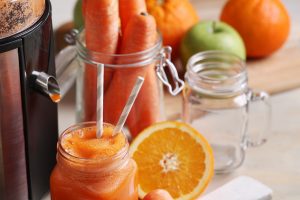
Vitamin B12
Vitamin B12 aids the formation of red blood cells, as well as the development and function of the baby’s brain. It is found in animal products such as meat, milk, fish, eggs, and fortified products, like non-dairy milk alternatives and cereal.
Vitamin D
Vitamin D helps the body to absorb calcium which is good for healthy teeth and bones. Vitamin D is made when the skin is exposed to sunlight. Good food sources of vitamin D include fortified low-fat or fat-free milk, fortified orange juice, egg yolks, and salmon. Experts recommend a daily intake of 600 international units of vitamin D for pregnant and breastfeeding women.

Breastfeeding, as with pregnancy, is a time related to increased nutrient needs that may not be achieved through diet alone. During lactation, mothers who take little calcium-rich foods are recommended to consume a calcium supplement. Nutrition during lactation is just as important as nutrition as during pregnancy. A breastfeeding mother should continue to eat to support her nutrition as well as that of her baby. A varied diet with nutrient-dense foods aids in the production of nutritious breastmilk. A mother who breastfeeds exclusively (feeding her child on breast milk only) needs a daily additional intake of about 19 grams of protein and 670 extra calories.
The WHO recommends mothers to breastfeed exclusively for the first six months of a child’s life. Fluid needs during breastfeeding are in high demand and mothers should take ample safe water. They should also limit their intake of sugar-sweetened beverages. Including less of the breastmilk and more of the complementary foods in a baby’s diet decreases the mother’s energy needs as well.
For more information regarding maternal nutrition and that of the baby, feel free to check out our Maternal, Infant, and Young Child Nutrition course here. Enjoy our 10% discount for the month of December!

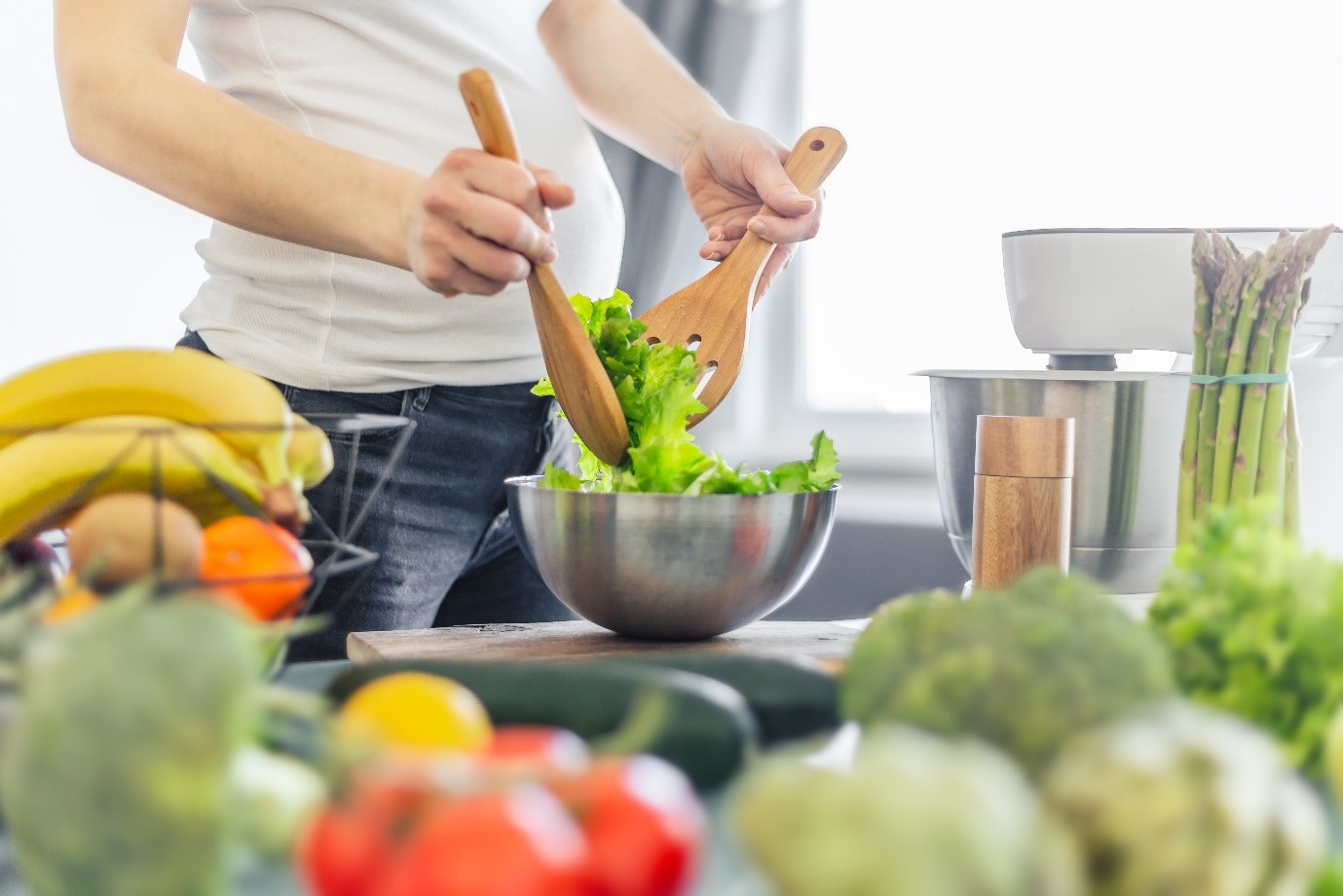






(2) Comments